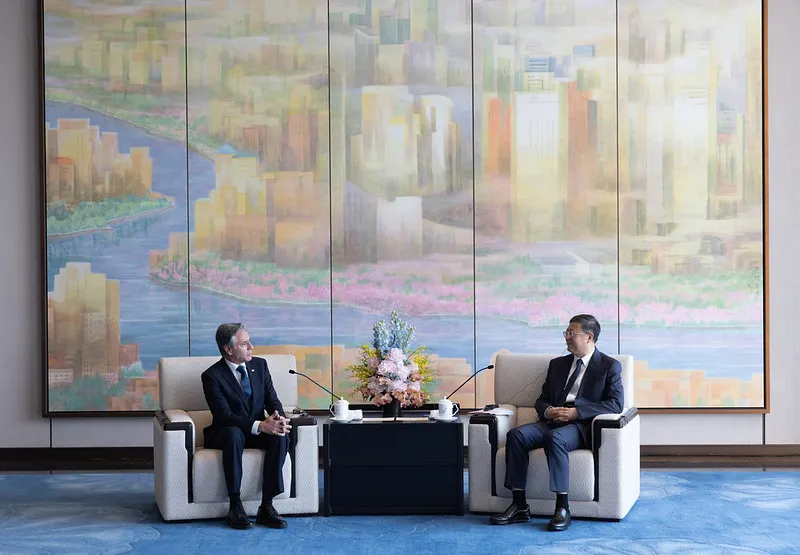April 27, 2024 (EIRNS)—Secretary of State Antony Blinken’s visit to China on April 24-26, plugged as part of the new high-level diplomacy between the two countries established at the Xi-Biden summit on Nov 15 last year, was focused on trying to pressure China to break their most essential economic ties with Russia—or else. Desperate over NATO’s failing effort to stop the Russian advances on the ground in Ukraine, Washington hoped to have enough leverage over China, because of the extensive trade relations, to force them to move away from Russia, or else to face killer financial sanctions of the sort now being applied to Russia. The gambit didn’t work.
In an April 26 interview with NPR’s Steve Inskeep, after Blinken met with President Xi Jinping, Blinken insisted that China “is the number one supplier of the critical components for Russia to rebuild its defense industrial base—machine tools, microelectronics, optics and other things.” That has to stop, he threatened. “You’ve already seen us take action against more than 100 Chinese entities with sanctions, applying export controls. There are other measures that we’re fully prepared to take. And as I said before, if China won’t act, we will.” Blinken issued the same threat in an April 26 interview with CNN’s Kylie Atwwod “What we said to China is this—we’re going to take actions, we already have; and if it doesn’t stop, we’re going to have to take more action, and you can anticipate as well, that other countries will (too)…. We’re looking to them [China] to act, and … if they don’t, we will.”
Earlier in the week, the Wall Street Journal had suggested that the U.S. launch full financial warfare against China, up to and including the “nuclear option” of expelling them from the SWIFT system of interbank communications.
Blinken received an answer from both Foreign Minister Wang Yi and President Xi Jinping, in separate meetings. Wang told him that “negative factors” are increasing in U.S.-China relations, and they are causing “all kinds of disruptions.” He stated that “China’s legitimate development rights have been unreasonably suppressed and our core interests are facing challenges,” and he warned the Biden administration “not to step on China’s red lines.” Wang also expressed concern that the U.S. had already taken measures which were not consistent with the agreements that had been made during the San Francisco November summit between Xi and Biden.






